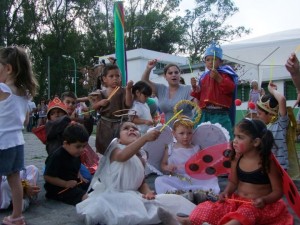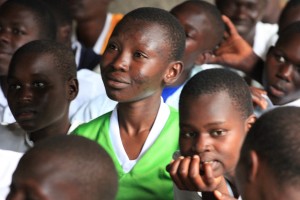Search Results for Tag: Generations
Russia needs less talk, more action
As Maria noted in her last entry, she believes the social dialogue in Argentina is heading the wrong way – and it seems that every country faces such points in its development. As I look back on my university years, I agree with her.
Sometimes there is too much talking and not enough real action (I don’t just mean the educational sphere only; it can be noticed in all of Russian economic or political life). With all due respect to the talented and brilliant professors and teachers of previous generations who helped several Russian geniuses (mathematician Grigori Perelman, for example) to reveal their potential, I would like to see changes in educational life.
![]() read more
read more
Recognizing the challenges of first-generation college students
Four years ago, I founded a local chapter of ArbeiterKind.de in Mainz, the city where I studied. The non-profit organization ArbeiterKind.de supports children whose parents didn’t attend university as they pursue college degrees. After I read an article about ArbeiterKind.de, I decided that I definitely had to support the organization for two reasons.
First, in the article Katja Urbatsch, the founder of ArbeiterKind.de, described the typical challenges for children of non-academic families after they finish high school. Many barriers seemed familiar to me: The insecurity about the value of studying certain subjects, like the humanities. A question I struggled with in the beginning was: Wouldn’t it be better to work and earn money immediately after high school? Later, the confusion arising from the task of writing initial academic papers was tough for me.
![]() read more
read more
My generation: flexibility is key
Emmy wrote that people increasingly need to be better qualified to find jobs in Kenya. The situation in Kenya is different from that in Germany, of course. But here we young people also need more and more qualifications to get a good job – and many of us actually have these credentials. I talked with my girlfriends about how our educational training and our lives as a whole have changed compared with our parents’. We have been friends for years. Some of us even went to the same kindergarten, so we were educated in the German school system at the same time.
![]() read more
read more
Building a learning community amid harsh conditions
After Barrio Mosconi, the circus workshop moved to El Dique, another slum in the district of Ensenada. Having set foot in both, I could tell the difference between them was that the latter has worse living conditions: informal housing and dirt roads instead of paved streets. Also, as Liliana put it very well during the meeting we had: El Dique has a bigger population, so it is able to have a Centro de Integración Comunitario. The proper translation would be “Community Integration Center,” and it is a special building provided by the government, where there is space for health initiatives as well as social development, arts, education and sports programs. This is where the circus classes took place.
![]() read more
read more
Educated women are more ‘expensive’
Last week on one of the television stations there was a report about school children who have to travel 10 hours to attend one hour of school. Hard to believe in this day and age! It’s because there are no schools nearby, and the transport system in that remote part of the country is almost non-existent.
In reflecting on gender and education – I thought to myself: In some parts of this world access to education irrespective of gender is a distant dream. Also, if access irrespective of gender is already a problem, how much more hard is it for girls in societies where the expectations for girls and women do not include getting an education?
![]() read more
read more
Importing a new degree system in Russia

Russian reforms are affecting how and what students study
After reading Emmy’s entry about Kenya’s system of education and its impact on young people’s choices, I’d like to talk about the same issue in my country.
Things are set up differently in Russia. Our schools use a 3-5-2 system. The first two steps are: primary school, which usually takes 3 years, and secondary school, which takes 5. Both are compulsory. Then there’s a choice between attending high school for 2 more years and getting the right to enter a full-time university or leaving school and doing a vocational training program.
![]() read more
read more









Feedback